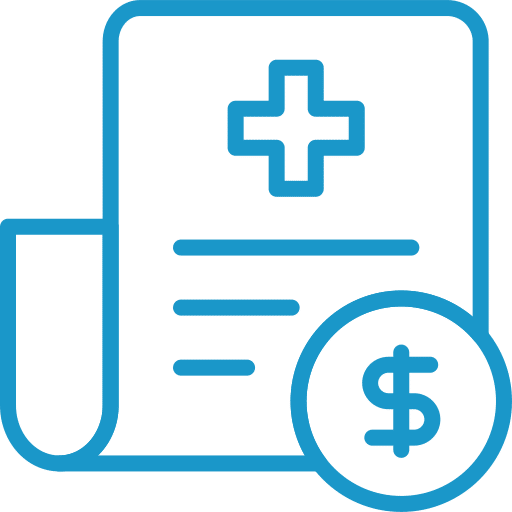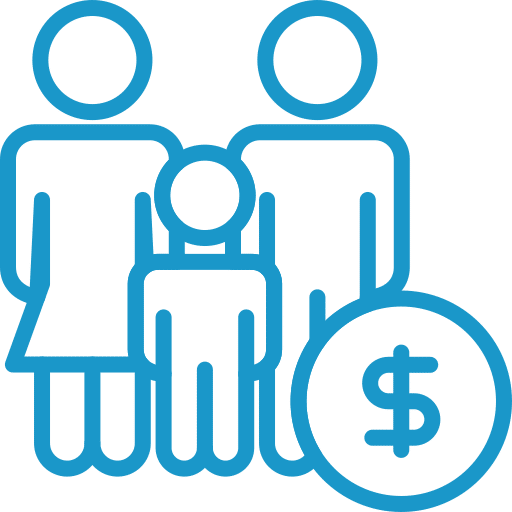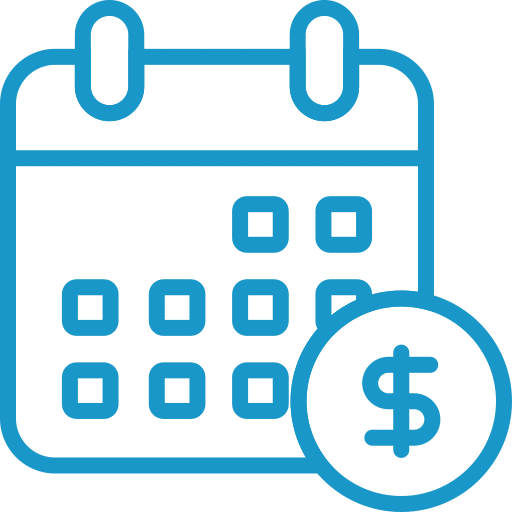How to Get a $25,000 Personal Loan







Where to Find $25,000 Loans (July 2025)
Are you considering taking out a $25,000 loan? A $25k loan is a type of personal loan that allows individuals to borrow that amount from a lender for various purposes. The loan is typically unsecured, meaning no collateral is required, and the interest rates and repayment terms depend on the borrower's creditworthiness. In this guide, we'll walk you through the steps on how to apply for a personal loan online and compare rates from top lenders.
Get started by comparing rates on $25k loans from our partners.
Compare personal loan rates
Compare personal loan rates in July, 2025
Need help finding the right loan?
No worries, we've got you covered! Compare personalized loan options in just minutes.
How Pasha Funding Works

Compare personal loan rates
When unexpected expenses arise or large-scale projects beckon, personal loans offer a streamlined solution to meet your financial needs. A personal loan is a type of unsecured loan, which means it doesn't require collateral like a home or car. This financial tool can be pivotal for covering costs without tapping into savings or other investments.
Among the various loan amounts available, a $25,000 personal loan stands out as a substantial sum that can significantly impact several facets of your life. Whether you're consolidating debt, renovating your home, or facing hefty veterinary bills, this amount can provide the necessary funds to achieve your goals.
This article serves as your roadmap to navigating the intricacies of obtaining a $25,000 personal loan. You'll discover:
- Key tips on how to get a personal loan
- Insightful reviews of top lenders in the market
- Strategic advice to enhance your chances of securing favorable loan terms
Armed with this information, you'll be better prepared to make informed decisions and find a loan that aligns with your financial situation.
Understanding $25,000 Personal Loans
When you're considering a large financial commitment like a $25,000 personal loan, it's essential to understand all aspects of the decision thoroughly. This includes knowing how these loans work, their benefits and drawbacks, and most importantly, how to choose the right lender.
Key Criteria for Choosing a Lender
Choosing the right lender for your $25,000 personal loan involves more than just finding the one with the lowest interest rate. Several key criteria should factor into your decision:
- Interest Rates: While this is a crucial factor, it is not the only one. Lower rates typically mean lower monthly payments, making the loan more affordable in the long run.
- Loan Term: The length of time you have to repay your loan also affects your monthly payment amount and total interest paid over the life of the loan.
- Fees: Many lenders charge fees such as origination fees or prepayment penalties which can add to the overall cost of your loan.
- Customer Service: Good customer service can make a big difference in your lending experience. Look for lenders that offer easy-to-use online platforms and have responsive customer support.
- Reputation: It helps to research each lender's reputation among previous borrowers and in professional reviews.
Keep in mind that different lenders may focus on different aspects of lending. For instance, some might offer loans with low or no origination fees while others might pride themselves on excellent customer service or flexible terms.
If you're considering a $25,000 personal loan, it's important to take these factors into account when choosing a lender. Doing so will help ensure that you end up with a loan that fits comfortably within your budget and meets your other needs as well.
Different Lenders that Offer $25,000 Personal Loans
Selecting the right lender for a $25,000 personal loan is crucial. Key criteria to consider include interest rates, repayment terms, and eligibility requirements. Here's a snapshot of reputable lenders and what they offer:
Upstart
- Loan amounts: Up to $50,000
- Interest rates: Can be as high as 35.99%
- Repayment terms: Flexible
- Unique features: Considers education and employment in addition to credit score for approval decisions.
LightStream
- Loan amounts: Offers a range of amounts suitable for different needs
- Interest rates: Competitive rates for borrowers with good to excellent credit
- Repayment terms: From 24 to 144 months
- Unique features: No fees or prepayment penalties; Rate Beat program and Loan Experience Guarantee.
Discover
- Loan amounts: $2,500 to $40,000
- Interest rates: Competitive
- Repayment terms: Various options available
- Unique features: Efficient online management tools and potential for same-day approval.
Upgrade
- Loan amounts: $1,000 to $50,000
- Interest rates: Adjusts based on creditworthiness and other factors
- Repayment terms: Customizable based on borrower's needs
- Unique features: Rate discounts for autopay and direct payoffs of existing debts.
SoFi
- Loan amounts: From $5,000 to $100,000
- Interest rates: Tailored to individual profiles
- Repayment terms: Two to seven years
- Unique features: Strong customer service with chat and phone support; Member benefits such as unemployment protection.
Each lender offers distinct advantages tailored to different borrower profiles. Whether prioritizing low interest rates or flexible terms, there is a lender that can meet your specific requirements for a $25,000 personal loan.
Other Lenders to Consider
When looking for $25,000 personal loans, here are some other lenders worth considering:
- Best Egg: Offers competitive interest rates and a fast approval process. It's a great option if you have a good credit score and need quick access to funds.
- LendingClub: A peer-to-peer lending platform that allows investors to fund your loan. It offers flexible loan terms and the ability to apply with a co-borrower.
- Avant: Tailored for borrowers with lower credit scores. Though the interest rates may be higher, it provides an opportunity for those who might not have access to traditional loans.
- Universal Credit: Offers personal loans with a focus on debt consolidation. It also provides free credit monitoring for its borrowers.
- Happy Money: Stands out for its unique approach of combining psychology and finance. They offer resources to help improve your financial habits along with your loan.
- OneMain Financial: Known for its in-person customer service, although it does have higher rates.
Each lender has distinct features, so it's essential to carefully review their offerings and choose one that aligns with your financial needs and situation.
Tips for Getting Approved for a $25,000 Personal Loan
Securing a $25,000 personal loan depends on showing lenders that you are financially reliable. Here are some steps you can take to improve your chances of getting approved:
Boost Your Credit Score
Improving your credit score is one of the most effective ways to increase your approval odds. Here's what you can do:
- Check your credit report for any mistakes or inaccuracies. If you find any, make sure to dispute them and have them corrected.
- Make sure to pay your bills on time. Your payment history has a significant impact on your credit score, so it's important to establish a track record of timely payments.
- Reduce your credit card balances. High credit card balances can negatively affect your credit utilization ratio, which is the amount of available credit you're using. Aim to keep this ratio as low as possible.
Provide Solid Income Verification
Lenders are keen on ensuring that you have a steady income stream, which plays a significant role in your ability to repay the loan. To solidify this assertion, be prepared to present a comprehensive set of documents that confirm your income stability and reliability. These documents may include:
- Recent pay stubs: Your most recent pay stubs provide tangible proof of your current earnings. They not only show the amount you earn but also demonstrate a consistent inflow of money, which is reassuring to lenders.
- Tax returns: Tax returns serve as an annual summary of your earnings, providing a broader view of your financial status.
- Bank statements: These can corroborate the information on your pay stubs and tax returns, giving lenders additional assurance of your earning ability.
Together, these documents create a compelling picture of your financial standing and underline your capacity to manage additional debt responsibly.
Improve Debt-to-Income (DTI) Ratio
Your debt-to-income ratio (DTI) is another crucial metric that attracts lenders' attention when reviewing loan applications. This ratio is essentially a measure of how much of your monthly income is dedicated to paying off existing debts.
A high DTI ratio might indicate that you are overburdened with debt, which could make lenders hesitant about extending further credit. Conversely, a lower DTI ratio suggests good financial health and could enhance the likelihood of loan approval.
Here are some actions you can take to optimize this important ratio:
- Pay down existing debt: Reducing existing obligations before applying for new credit can help lower your overall debt burden. This could effectively decrease your DTI ratio and make it more attractive to prospective lenders.
- Aim for a DTI ratio below 36%: Many lenders view a DTI ratio under 36% as favorable since it demonstrates prudent financial management. Strive to achieve or maintain this ratio to increase your chances of securing a loan.
By diligently following these steps and taking proactive measures to improve your financial standing, you can enhance your prospects of getting approved for a $25,000 personal loan. Remember, every positive action you take towards improving your financial health is a step towards achieving your financial goals.
Loan Uses and Alternatives
When you secure a personal loan, particularly one as substantial as $25,000, it generally serves significant financial objectives. Two of the most common uses include:
Personal Loan Uses
- Debt Consolidation: One of the key uses of a $25,000 personal loan is to consolidate your debts. This strategy involves combining multiple high-interest debts – such as credit card balances and other loans – into a single, manageable loan with a potentially lower interest rate. In doing so, you can streamline your monthly payments into one fixed payment, saving you from the hassle of managing multiple creditors. Moreover, by swapping your high-interest debt for a lower-interest loan, you can potentially save on interest charges in the long run. This strategy is particularly beneficial if your total debt doesn't exceed $25,000.
- Home Improvements: Another common use of a substantial personal loan like this is for home improvements. Renovating or repairing your home can be quite expensive, often running into several thousand dollars. A $25,000 personal loan provides you with the necessary funds to enhance your living space without depleting your savings. Be it remodeling your kitchen, adding a new bathroom, landscaping your yard, or installing energy-efficient appliances; these improvements not only increase your property's value but also significantly improve your quality of life.
Alternative Options
But what if a traditional personal loan isn't the right fit for you? Consider these alternative options:
-
- Home Equity Loans: A viable alternative to personal loans is a home equity loan. Homeowners who have accumulated significant equity in their property can borrow against this value. This type of loan often comes with lower interest rates compared to personal loans, which could potentially result in lower monthly repayments. However, it's important to understand that your home serves as collateral. Consequently, if you default on the loan, you could risk foreclosure. It's essential to assess your ability to meet the repayment terms before opting for a home equity loan.
- Peer-to-Peer (P2P) Lending Platforms: If traditional lending channels are unavailable or unappealing due to credit constraints or other reasons, P2P lending platforms may be a good fit. These digital platforms connect borrowers directly with investors, bypassing conventional financial institutions. P2P lending platforms tend to offer more flexibility in terms of eligibility criteria and repayment terms. However, interest rates can vary widely based on your creditworthiness and other factors.
Each borrowing method comes with its own set of advantages and considerations. Whether it's for debt consolidation, home improvements, or another substantial expense, assessing all available options ensures you choose the most suitable path for your financial needs.
$25,000 Loan Calculator
Total Payment
-
Total Interest
-
Monthly Payment
-
Ready to apply for a personal loan?
Compare rates from top lenders with no impact on your credit, ever.
Quick links

Ready to apply for a $25k personal loan? Get started today.
Compare personal loan rates
Frequently Asked Questions (FAQs)
1. What are the eligibility criteria for a $25,000 personal loan?
Different lenders have varying criteria, which can include credit score, income level, employment status, and debt-to-income ratio. For instance, Upstart considers educational background and job history alongside credit scores. A strong financial profile generally improves your chances of approval.
2. How does the application process work?
Typically, the application process involves applying directly with a lender online or in-person, submitting necessary documents (like proof of income), and undergoing a credit check. Some lenders like SoFi also offer prequalification to help you gauge potential terms without impacting your credit score.
3. What are the risks involved in taking out a $25,000 personal loan?
Potential risks include falling into debt if you can't make timely repayments, which can lead to higher interest charges and fees. Your credit score might suffer as well. With certain types of loans such as home equity loans, defaulting could even result in loss of property.
4. Can I get a $25,000 personal loan with bad credit?
Yes, but it may be more challenging and likely come with higher interest rates and fees. Some lenders like Upstart might still consider applicants with less-than-perfect credit if they demonstrate strong earning potential or other positive factors.
Remember that it's essential to compare various lenders' offerings to find the most suitable one for your needs and circumstances.
Closing Thoughts
When considering a $25,000 personal loan, it's crucial to assess both your financial needs and your ability to meet future repayment obligations. Take the time to reflect on the necessity of the loan and how it aligns with your long-term financial goals. Also, ensure your income and debt-to-income ratio are in a healthy range that allows for manageable monthly payments.
Choosing a reputable lender is equally important for a positive borrowing experience. Look for one that offers competitive interest rates, transparent terms, and stellar customer service.
By selecting the right lender and terms, you position yourself for financial success. Remember, this is not just about securing funds, but about fostering financial stability and peace of mind.
Search loan options by good to excellent credit:
- 680 Credit Score Personal Loans
- 700 Credit Score Personal Loans
- 750 Credit Score Personal Loans
- 800 Credit Score Personal Loans
Search personal loans by other amounts:
- $5k Personal Loans
- $10k Personal Loans
- $25k Personal Loans
- $35k Personal Loans
- $50k Personal Loans
- $75k Personal Loans
- $100k Personal Loans
Additional resources
Federal Trade Commission (FTC): The FTC is a U.S. government agency that focuses on consumer protection. They provide guidance on various financial topics, including personal loans. You can find information on understanding personal loans and tips for borrowing wisely on their website.
U.S. Small Business Administration (SBA): Although primarily focused on assisting small businesses, the SBA offers resources and information on personal loans for business purposes. It can be helpful for entrepreneurs seeking loans to fund their ventures.
Consumer Financial Protection Bureau (CFPB): The CFPB is another U.S. government agency that provides consumer financial information and resources. They cover various aspects of personal loans, including understanding loan terms, comparing offers, and avoiding scams.
Compare personal loans from top lenders
Are you ready to find a personal loan for your needs? We've partnered with Credible to help you find your rate. Checking your score is free and won't impact your credit!
Personal Loans for Every Occasion
Find Your Best Rate
Compare Best Personal Loans
Personal Loan Payoff Calculator
Personal Loan Lender Reviews
Personal Loans By Credit
Personal Loans for Fair Credit
Personal Loans for Good Credit
Personal Loans for Excellent Credit
Personal Loan Types
Auto Repair Loans
Credit Card Consolidation Loans
Fast Personal Loans
Home Improvement Loans
Horse Barn Financing
Wedding Loans
Family Planning Loans
Funeral Financing
Land Purchase Financing
Manufactured Home Financing
Medical Loans
Cosmetic & Plastic Surgery Financing
Owner Builder Construction Loans
Personal Loans for House Down Payment
Personal Loans for Self Employed
Personal Loans for Furniture Expenses
Student Loans
Debt Consolidation Loans
Vacation & Travel Loans
Emergency Personal Loans
Personal Loans with Co-signers
Home Improvement Financing
Appliance Financing
Bathroom Remodel Financing
Basement Remodel Financing
Boat Dock Loans
Deck Financing
Driveway Paving Financing
Fence Financing
Flooring Financing
Furnace Financing
Garage Financing
Home Addition Financing
Hot Tub Financing
HVAC Financing
Home Insulation Financing
Interior & Exterior Painting Financing
Kitchen Remodel Financing
Kitchen Cabinet Financing
Pole Barn Financing
Roof Financing
Solar Panel Financing
Swimming Pool Financing
Sunroom Addition Loans
Window Replacement Financing
Loan rate & terms disclosure: Prequalified rates are based on the information you provide and a soft credit inquiry. Receiving prequalified rates does not guarantee that the Lender will extend you an offer of credit. You are not yet approved for a loan or a specific rate. All credit decisions, including loan approval, if any, are determined by Lenders, in their sole discretion. Rates and terms are subject to change without notice. Rates from Lenders may differ from prequalified rates due to factors which may include, but are not limited to: (i) changes in your personal credit circumstances; (ii) additional information in your hard credit pull and/or additional information you provide (or are unable to provide) to the Lender during the underwriting process; and/or (iii) changes in APRs (e.g., an increase in the rate index between the time of prequalification and the time of application or loan closing. (Or, if the loan option is a variable rate loan, then the interest rate index used to set the APR is subject to increases or decreases at any time). Lenders reserve the right to change or withdraw the prequalified rates at any time.
Requesting prequalified rates on Credible is free and doesn't affect your credit score. However, applying for or closing a loan will involve a hard credit pull that impacts your credit score and closing a loan will result in costs to you.









